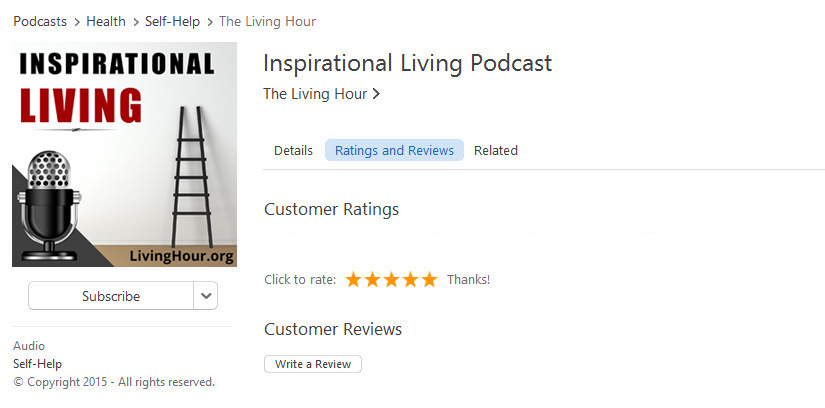07 Apr The Arc of the Moral Universe | Spirituality Podcasts
Podcast Transcript: Welcome to the Inspirational Living podcast, brought to you in part by Book of Zen, makers of wearable inspiration for a better world. Today’s podcast has been edited and adapted from the book 10 Sermons of Religion by Theodore Parker, published in 1853.
Everywhere in the world there is a natural law: that is, a constant mode of action which seems to belong to the nature of things, to the constitution of the universe. This fact is universal.
This mode of action is referred to by different names, such as the law of Matter, the law of Mind, the law of Morals, and the like. In other words, it means a certain mode of action which belongs to the material, mental, or moral forces (the mode in which commonly these forces are seen to act, and in which it is their ideal to act always).
The ideal laws of matter we only know from the fact that they are always obeyed. To us the actual obedience is the only witness of the ideal rule—for with respect to the conduct of the material world, the ideal and the actual are the same.
The laws of matter we can learn only by observation and experience. We cannot divine them and anticipate (or know them at all) unless experience supplies the facts of observation.
For example, before experience of the fact, no person could tell that a falling body would descend sixteen feet the first second, twice that the next, four times the third, and sixteen times the fourth. The law of falling bodies is purely objective to us. No mode of action in our consciousness anticipates this rule of action in the outer world. The same is true of all the laws of matter.
The ideal law is known because it is a fact. The law is imperative; it must be obeyed, without hesitation. In the solar system, or the composition of a diamond, no margin is left for any oscillation of disobedience. Margins of oscillation there always are, but only for vibration as a function, not as the refusal of a function. Only the primal will of Nature works in the material world, no secondary finite will.
In Nature, the world spreads out before the senses—grouping many specific modes of action about a single generic force. And we see that there is a great general law of Attraction, which binds atom to atom in a grain of sand, orb to orb, system to system, gives unity to the world of things, and rounds these worlds of systems to a universe.
At first there seems to be exceptions to this law of attraction — such as in growth and decomposition, and in the repulsions of electricity. But when studied at length, all these are found to be situational cases of the great law of attraction acting in various modes.
We name the attraction by its several modes of application: cohesion in small masses, and gravitation in large ones. When the relation seems a little more intimate, we call it affinity, as in the atomic union of molecules of matter.
Other modes we name electricity, and magnetism. When the relation is yet more close and intimate, we call it vegetation in plants, vitality in animals. But for our present purposes, all these may be classed under the general term Attraction, which acts in various modes of cohesion, gravitation, affinity, vegetation, and vitality.
This power gives unity to the material world, keeps it whole. Yet, acting under such various forms, gives variety at the same time. The variety of effect surprises the senses at first. But in the end, it is the unity of cause that astonishes the cultivated mind.
Looked at in reference to this earthly globe of ours, an earthquake is no more than a chink that opens in a garden-walk on a dry summer’s day. A sponge is porous, having small spaces between the solid parts; the solar system is only more porous, having larger room between the several orbs; the universe yet more so, with vast spaces between the systems.
It is the law of attraction that keeps together the sponge, the system, and the universe. Every particle of matter in the world is related to each and all the other particles thereof; attraction is the common bond.
The full podcast transcript for this episode is now exclusively available to our patrons. Become our patron for as little as 3$ a month to gain access to all of our podcast transcripts and the exclusive series Our Sunday Talks. Learn more at: https://www.patreon.com/inspirationalpodcasts.
Subscribe to the Inspirational Living Podcast at iTunes & Stitcher
All transcripts from our inspirational podcasts are edited adaptations of the original work and copyrighted by LivingHour.org. For reproduction permission please contact us via our contact page.


